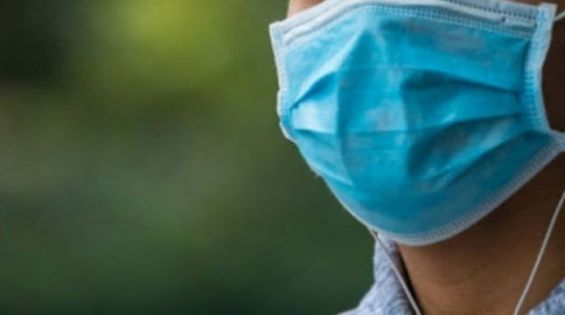Wearing a mask has become part of our daily life as a must-have and must-carry tool. Outside, in the bus, and at the supermarket, wearing a face covering has become the new normal and a civic duty to help prevent the spread of Covid-19, as mandated in April.
But wearing a face mask can inadvertently cause what is commonly referred to these days as maskne, or mask acne. The new appellation is linked to the unfortunate side effect that can occur when wearing a face mask for various reasons.
Mask-induced acne happens when «a face mask prevents the skin underneath it from ‘breathing’», Casablanca-based dermatologist Mohamed Laglaoui explained. He referred, in particular, to «skin occlusion», which prevents the normal evaporation from the skin surface.
Clogged up pores and skin irritation
Indeed, the clogged up pores, the built-up sweat and sometimes bacteria lead to acne and other skin problems in the lower half of the face, according to dermatologist and esthetic doctor Mouna Hanadi Elallam.
«Wearing a mask can also irritate the skin, especially parts that are in contact with the mask, such as the nose, chin, cheek bones and the back of the ears», the Casablanca-based doctor explained.
But the most undesirable effect caused by mask-wearing is the skin’s inability to breathe underneath. «This can lead to skin problems, aggravate the existing ones, like acne in acne-prone skin and eczema, and seborrheic dermatitis in atopic skin», Dr Elallam added.
These skin problems occur differently, depending on the type of the skin. For a dry and sensitive skin, wearing a mask «absorbs the oil naturally produced in the epidermis and aggravates skin dryness and irritation». This can include «tingling, itching and intense redness», the doctor stressed.
Those with oily or combination skin (having oily skin in some areas of the face and dry skin in others), can experience «unexpected acne pimples». To Elallam, these pimples and zits occur because the mask «traps oil and skin debris inside the pores, which creates acne».
Preventing maskne
To prevent the skin from breaking out while keeping the mask on, the medical practitioner recommends «cleansing the skin in the morning and evening with pharmaceutical products suitable for each skin type and avoiding, as much as possible, makeup products and creams that are too oily».
«Regular medical facials are also important to deep cleanse the skin and eliminate closed and open comedones (blackheads and closed are whiteheads, ed)», Elallam explained.
In addition to cleansing, wearing a mask does not eliminate the need to use sun creams, as they do not protect the skin from UV rays. Wearing a clean mask is also a primordial step to avoid skin problems and prevent the spread of the virus at teh same time. Changing them every four hours remains crucial, the skin expert concluded.




 chargement...
chargement...












